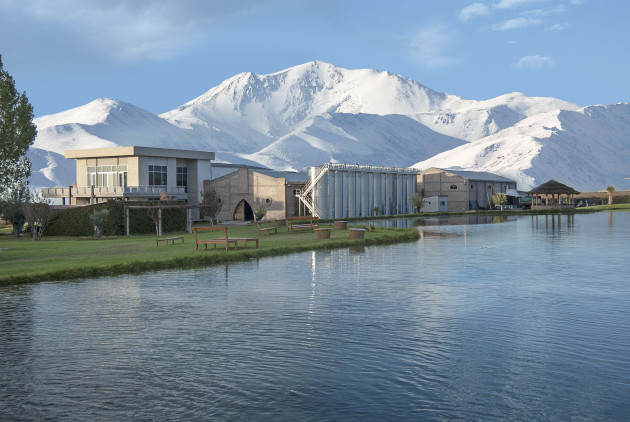
Bousquet impact report aims to ‘move the sustainability needle’ in South America
Domaine Bousquet has released a seminal Sustainability Impact Report which outlines the achievements and future direction for wineries in South America.
The producer has established itself as one of the leaders in sustainability on the subcontinent since planting its first vines in 1997, achieving B Corp status in 2022 and organic certification for 100% of its wines since 2005.
The report dives into the journey thus far, while also aiming to function as “a practical guide to move the sustainability needle”, co-owner Anne Bousquet said.
Updates to the report will be issued annually, acting as a record of the business’s commitment to organic wine production and sustainability.
At a launch event yesterday (8 May) Domaine Bousquet also updated the audience on several other new initiatives which fold in corporation from other wineries. These include the development of a new wine industry carbon lifecycle calculator, which will be made available to all South American wineries. Buy-in from five Argentine and Chilean wineries will foot the costs of this project, by adapting the International Wineries for Climate Action (IWCA) calculator to incorporate South American regional emissions. This tool has been successfully used in several regions around the world. Leveraging a common methodology locally will now lead to more “transparent and meaningful results across South America”, Anne Bousquet said.
Domaine Bousquet Sustainability Impact Report 2023 highlights many of the milestones achieved so far in the domaine’s sustainability journey.
These include reducing greenhouse gas emissions every year with the objective of becoming carbon neutral by 2030. Lightweighting is also a focus. Currently, over 70% of all Domaine Bousquet wines are packaged in lightweight (420g and under) bottles, while further carbon reductions have been made via in-market bottling in the UK, US and Europe.
‘No vineyard tilling’ is a key tenet. This ‘protects the delicate balance of beneficial microbes, helps with water retention and protects captured carbon from being released into the atmosphere’, the report reads.
Sustainability initiatives have come a long way since the 1990s.
Labid Ameri, president and co-founder of the domaine said: “We were adopting these practices at a time when the closest examples and ‘teachers’ in sustainable viticulture were continents away.”
The report now outlines a commitment to a ‘systemic approach’. This means ‘identifying every impact in the value chain, collaborating with key stakeholders, creating clear long, medium and short-term objectives, and assessing them with meaningful key performance indicators (KPIs),' the report concludes.
Access the full report here.





